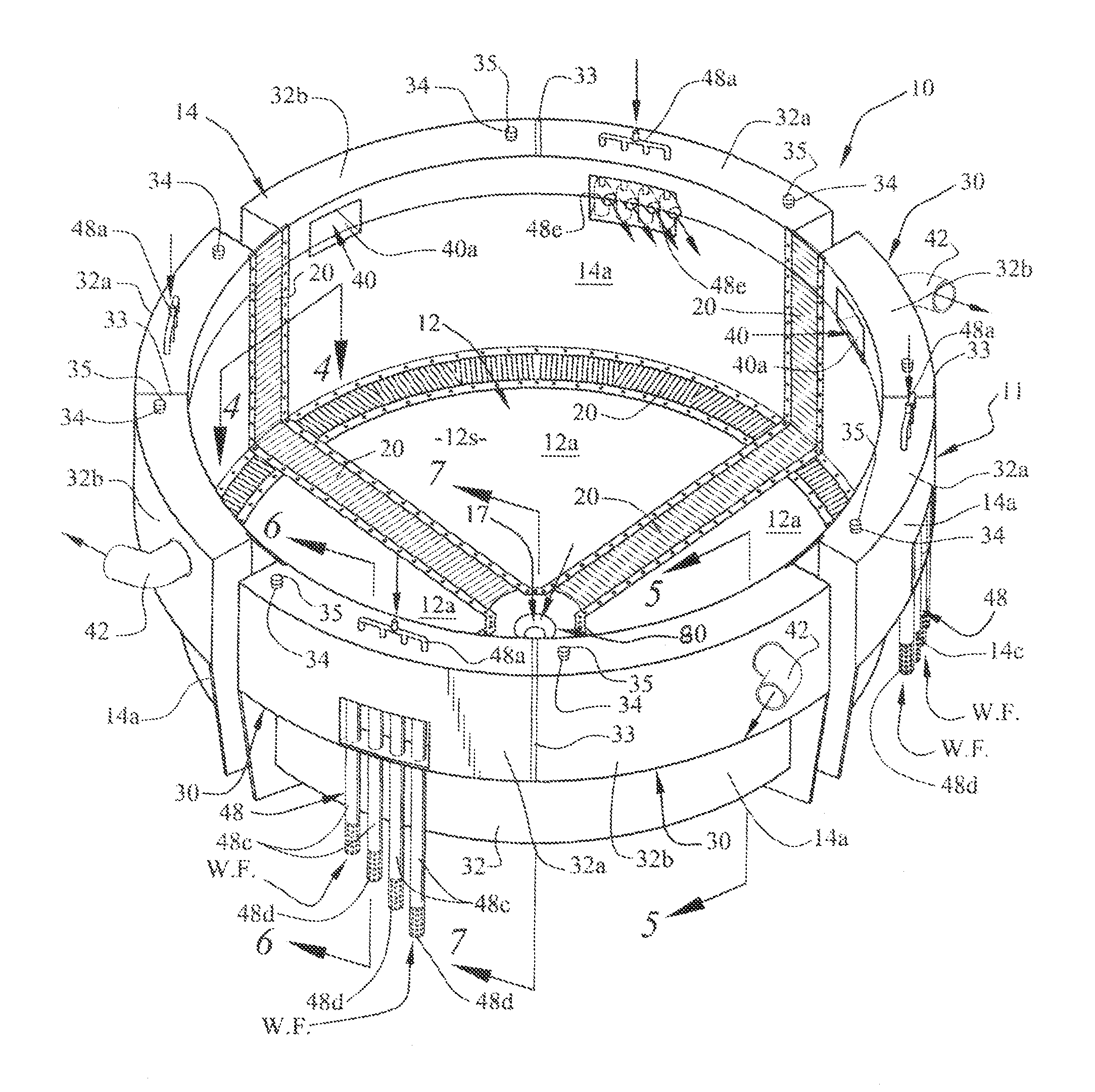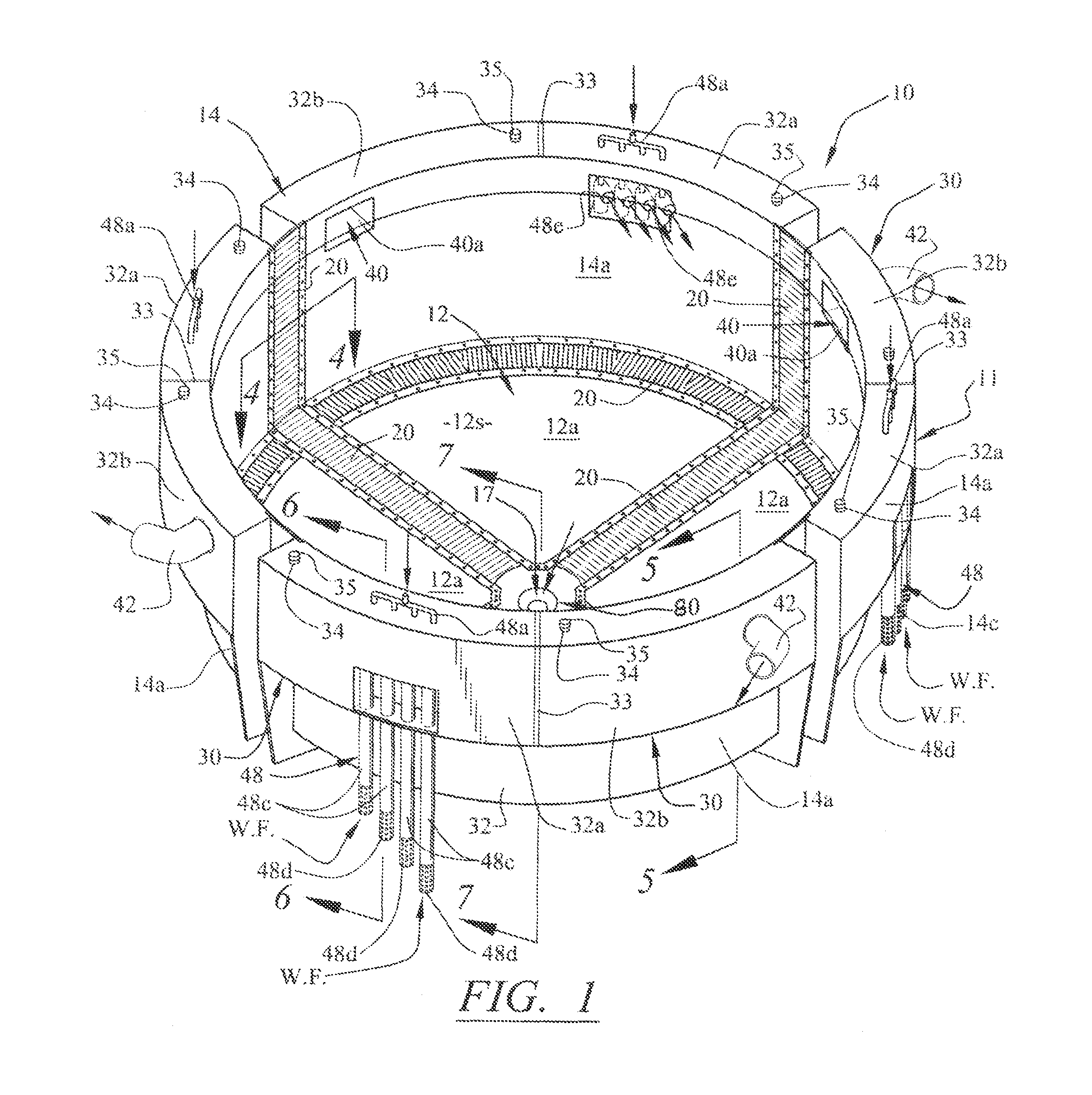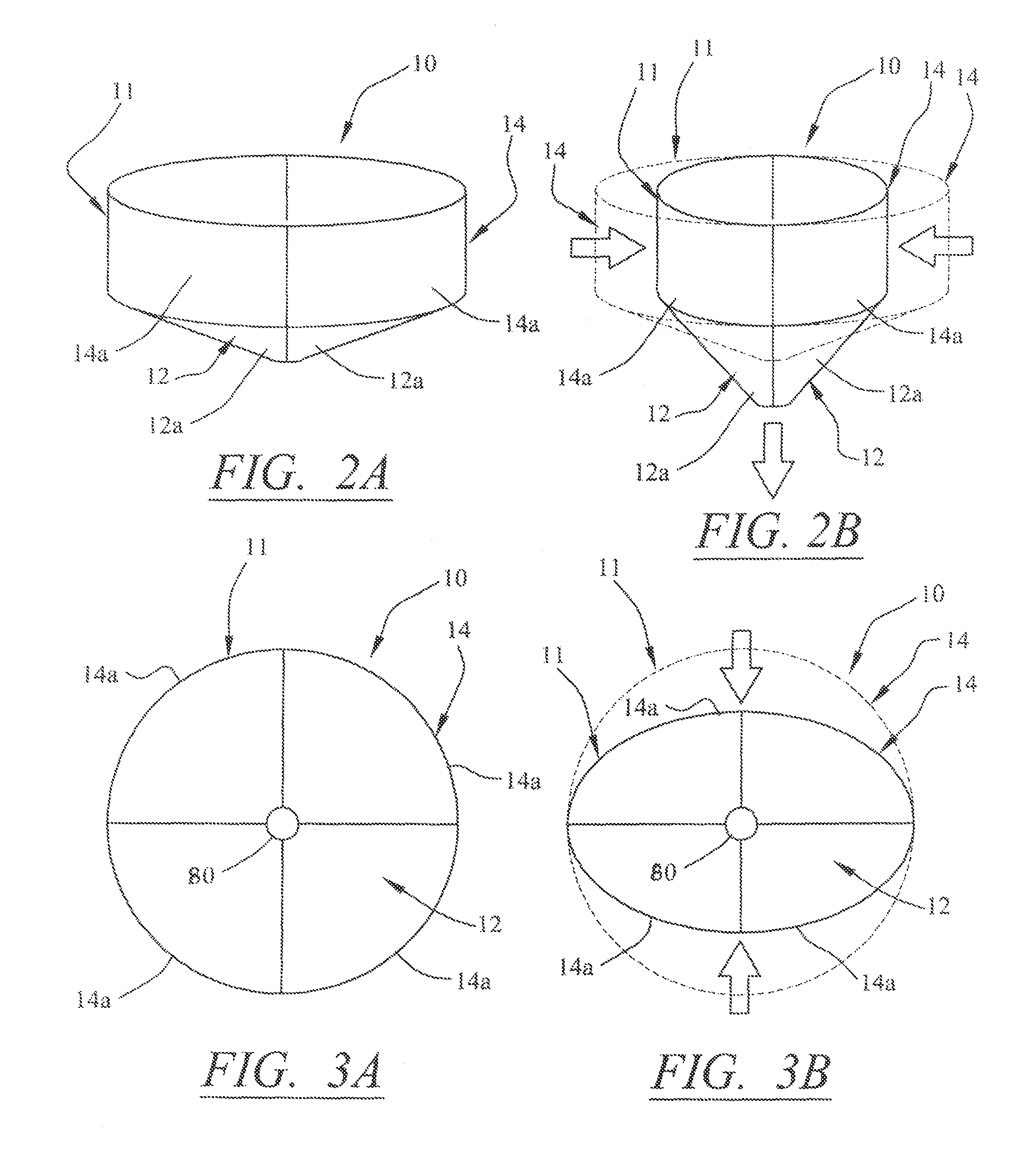Aquaculture production system
a production system and aquaculture technology, applied in pisciculture, aquaria, climate change adaptation, etc., can solve the problems of escapism of non-native species into the environment, severe limitations of application of net pen/cage systems, environmental scrutiny, etc., to reduce energy consumption, economic and environmental superiority, and reduce stress on the structure of the tank
- Summary
- Abstract
- Description
- Claims
- Application Information
AI Technical Summary
Benefits of technology
Problems solved by technology
Method used
Image
Examples
Embodiment Construction
[0044]The entire floating fish production system is shown in FIGS. 10 and 12 and is generally indicated as 1. Referring initially to FIG. 1, the fish production system 1 includes at least one primary containment tank (also referred to interchangeably as “aquaculture tank”), generally indicated as 10. The primary containment tank 10 is defined by a tank body 11 that has a floor structure 12 and a wall structure 14 extending upwardly from the floor structure 12 to an open top which may be covered by a dome shaped netting or mesh 15, as generally depicted in FIGS. 10 and 12. The floor structure 12 and wall structure 14 surround a tank interior 16 that is adapted to be filled with water taken from a surrounding body of water within which the containment tank 10 is partially submerged, as shown in FIG. 10. The tank interior 16, when filled with water, is adapted for containing fish and other aquatic animal, plant, and algal species, with the primary purpose of producing fish, shrimp, mol...
PUM
 Login to View More
Login to View More Abstract
Description
Claims
Application Information
 Login to View More
Login to View More - R&D
- Intellectual Property
- Life Sciences
- Materials
- Tech Scout
- Unparalleled Data Quality
- Higher Quality Content
- 60% Fewer Hallucinations
Browse by: Latest US Patents, China's latest patents, Technical Efficacy Thesaurus, Application Domain, Technology Topic, Popular Technical Reports.
© 2025 PatSnap. All rights reserved.Legal|Privacy policy|Modern Slavery Act Transparency Statement|Sitemap|About US| Contact US: help@patsnap.com



